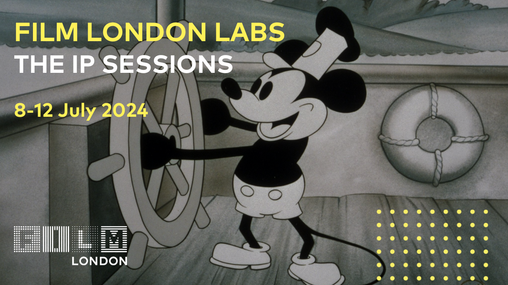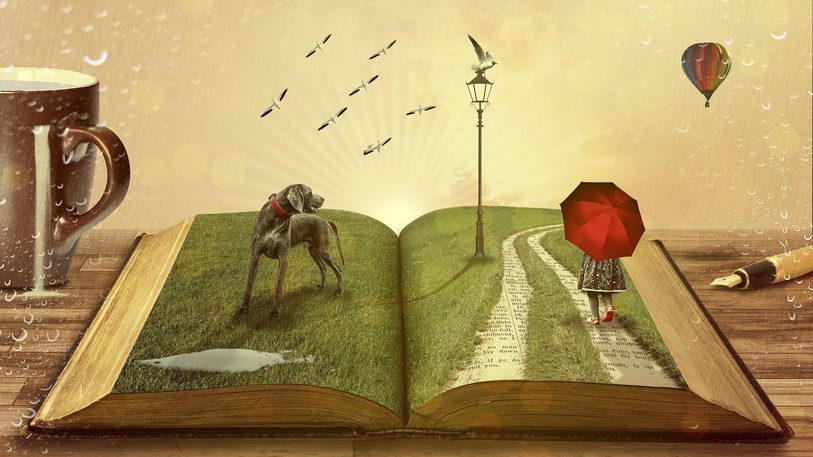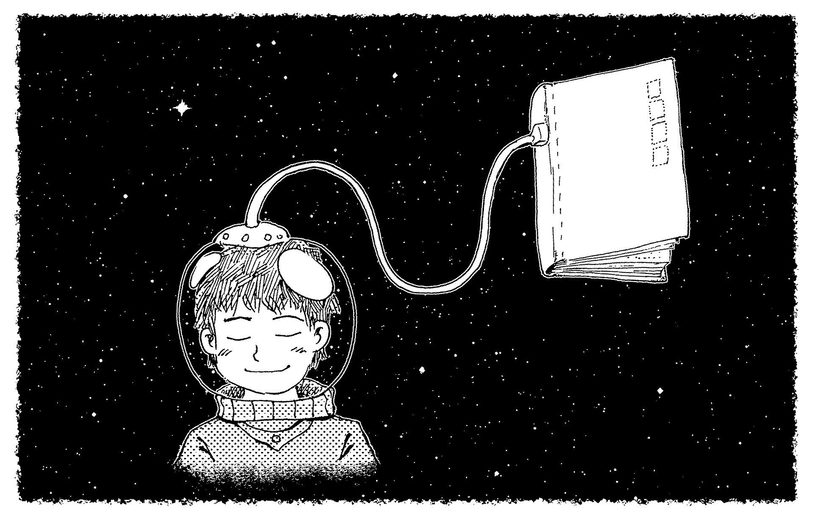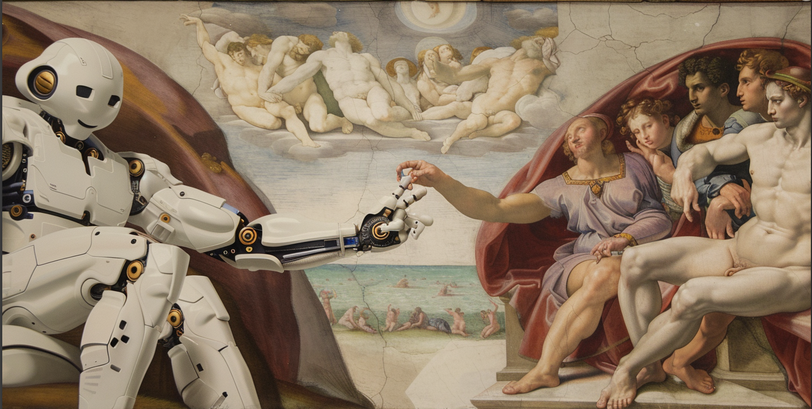What Is IP?

Join us for Film London Labs: The IP Sessions
(8-12 July)
It’s a term that’s thrown around a lot in this business. But what does IP actually mean? And what does it mean specifically for creators trying to break into the industry and bring their stories to life on screen?
We’ll be getting to grips with this next week in a Film London Labs course, The IP Sessions, running 8-11 July – you can grab tickets here. In the meantime we wanted to get the conversation started by setting out some thoughts from our experience.
IP means different things depending on who’s talking about it. Generally the reason it matters to people in our industry is because, in the massive and uncertain gamble that is moviemaking, IP is a factor that can make a project a less risky and more promising proposition. But it’s just one factor among many.
TL;DR – in the “biz”, when people talk about IP, they usually mean a story that has proven itself—meaning it landed successfully with a significant audience—and so is highly bankable as a potential movie or series.
"If I had grown up watching YouTube, I don’t know if I would like movies.”
- Kumail Nanjiani
Wanna know why? Read on to find out.
"Copyright? Copy RIGHT"
What IP means to Lawyers

If we’re getting literal about it, intellectual property means a piece of work that:
- is original,
- involves some creative effort by a human, and
- is in a developed enough form to deserve legal protection (in our case copyright).
UK copyright law categorises works as:
- literary (e.g. books, articles, scripts, song lyrics, stand-up routines),
- dramatic (performances that can’t be expressed in words, e.g. dance, mime),
- musical (music without lyrics) or
- artistic (paintings, photos, wood carvings, architectural designs).
By the way, an idea alone isn’t copyrightable. After all, anyone can come up with an idea. Who here hasn’t had an uncle corner them at a reunion and exclaim ‘hey I’ve got a great idea for a film, you should write it’?
But to turn that idea into a meaningful story takes a lot of work. So the law protects not the idea but the expression of it. If out of desperation you turn your uncle’s idea into a script, he can’t sue you for a share of the writer’s fee, because you did all the work. And FYI “expression” of an idea needn’t go as much as a script; it could simply be a treatment, outline, series format or a detailed verbal pitch.
"Copyright? Copy RIGHT: Steal ideas, steal facts but do not steal words." - Dan Poynter, author
"I can already see the movie"
What IP means to Producers

Since the earliest moving pictures, cinema has mined books for stories to adapt. From Gone with the Wind to Gone Girl, and To Kill a Mockingbird to The Hunger Games Mockingjay, the road from page to screen is a well-traveled one.
The same goes for TV. And with the explosion of streamer-funded series, the hunger for adaptable books has only got more ravenous, running the gamut from steamy drama Normal People to epic historical actioner Shogun.
In all these examples, the stories have proven themselves in written form, building a wide army of readers and garnering critical acclaim, which makes spending the money on it a safer bet. And of course, the more expensive a project is, the bigger the source IP's gravitational pull has to be. Shogun and Dune are monumentally expensive, but they’re both based on books considered classics.
If you’re an indie producer, a major novel like Dune is likely to be out of your reach (though you could find lesser known sci-fi that might be the "next" Dune). You also may not be able to buy the rights to a property outright. Instead you could option it—buy the exclusive right to shop it around for a given period, at the end of which you can either buy the property, extend the option or let it lapse—and then armed with that, you can pitch the adaptation to film financiers or TV/streaming commissioners.
But the adaptation isn’t going to write itself. You need a credible and compelling writer onboard who can offer a vision of the film/TV version which stands on its own. (Adaptation is a real art, and not an easy one: Charlie Kaufman found it so hard he ended up writing a movie about not being able to adapt a book.) And a strong director and appealing cast. Dune probably wouldn’t have taken off without the combination of its borderline-household-name director and its immensely bankable young stars Timothee Chalamet and Zendaya.
There’s an argument that overreliance on IP has made cinema less creative. As far as big budget films go, studios seem to be clinging to franchises that are more than 50 or even 100 years old, as Ted Gioia points out. Are these stories still going to hold the same interest for generation after generation?
“I don’t want to sound like an old idiot, because I try to keep up with what’s happening on YouTube, and it’s a lot of people talking to camera, very personality-driven. I grew up watching “Ghostbusters” and “Gremlins” and “Indiana Jones.” If I had grown up watching YouTube, I don’t know if I would like movies.”
"Like and Subscribe"
What IP means to Creators

It’s a sad reality of this industry that few people want to take a risk on someone new. The idea of a first-time writer selling a spec feature or pilot purely based on the concept and writing is even rarer than it used to be. You need to be able to demonstrate its audience potential upfront. Luckily there are more ways than ever to do this.
Adapt something that’s out of copyright
Copyright lasts 70 years beyond the author’s lifetime. So each year, thousands of stories go into the public domain, meaning they’re free to use. And many of these are pretty well known, meaning they come with some level of instant audience potential.
It’s part of the reason we see a dozen Shakespeare, Jane Austen or Sherlock Holmes adaptations each year. But when something is done so many times, you’re going to have to show that you’ve got a fresh and unique take on it. That’s where Pride and Prejudice and Zombies came from, and it’s also the logic behind last year’s Winnie the Pooh: Blood and Honey (a slasher horror take on the cuddliest of franchises).
The key with an adaptation though is to make sure you are genuinely excited by the story, you connect with it emotionally in some way, and you have a point of view about it that you’re eager to explore. Otherwise you’re not going to enjoy writing it, and that’ll probably show on the page.
Make your story in a format with fewer barriers
Think of all the different ways we consume stories now: film, TV, games, books and theatre for sure, but also podcasts, audio books, TikToks, YouTube, WattPad, Reddit, live comedy and more. So many of these formats are easier and cheaper to create for, and enable you to find and reach niche audiences in our more fractured media landscape:
- Queenie and This Is Going to Hurt are examples of stories written in book form that their authors then parlayed into popular TV series.
- The hunger for true crime stories started in podcasts (e.g. Serial) before TV mined that world for series adaptations (The Dropout, Dr Death, WeCrashed). There are literally TV comedies about podcasts (Only Murders in the Building, Bodkin).
- Adventure Time, Dreaming Whilst Black and Insecure started out as YouTube shows, charming audiences with their storytelling in scalable ways, and off the back of those responses they were commissioned as TV series by major networks. The latter two in particular show how powerful it can be for writer-performers to create a brand for themselves in web series and short form content.
Bear in mind that making something successful in any of these formats still takes a lot of hard work, strategic thinking and tenacious hustling. You could make things, put them out there and nobody picks them up.
So you need to make sure you’re passionate and determined to tell this story in this form—it needs to be rewarding in its own right—and you need to really understand the format and how to attract audiences within it.
"IP, therefore I am"
What IP means to AI

If you attended our recent AI for Filmmakers (and other frightened creatives) lab in partnership with Stephen Follows, you’ll have seen the countless ways that AI tools can supercharge (or dare we say even substitute?) your own creativity.
Since AI models have been trained on a whole host of stories and materials on the internet, writers and studios are worried that this includes their own copyrighted stories, meaning those AI models are arguably infringing copyright with the delightful things they spew on command.
While all of us are influenced by the stories we watch, the difference is that we bring ourselves into the things we create. AI is not regarded as doing that. Which means AI can’t be regarded as an ‘author’ under the law at the moment. What ChatGPT, Midjourney or Dall-E generate from your prompts is most likely owned by you.
You can catch up on our AI lab here on Udemy.
Don’t think IP – think audience
Anyone can say two letters out loud. But what’s going to matter to people whom you’re asking to part with money is whether the story you’re selling is going to get traction with a big enough audience. In that sense, IP is shorthand for one of many ways that a project can show its audience potential, along with equally important things like casting, the creative team, the genre’s appeal in the current market, comps, and of course, a ripping good yarn.
We'll dive more deeply into these questions and more in our Film London Labs: The IP Sessions course next week, with a roster of incredible speakers including creators, commissioners, reps and thought leaders. Get your ticket here and join us!
Article by Sanj Krishnan, Film London's Production & Development Executive